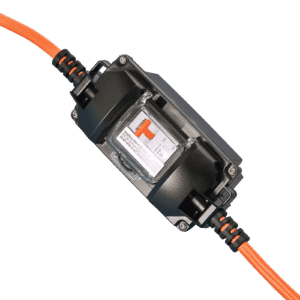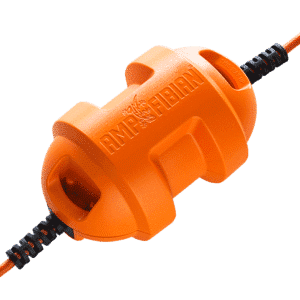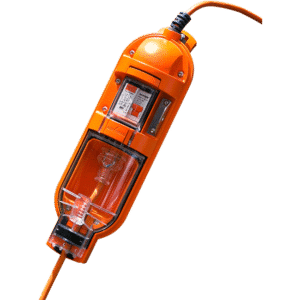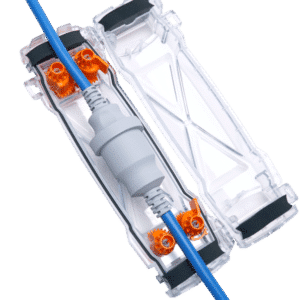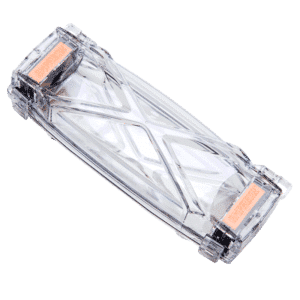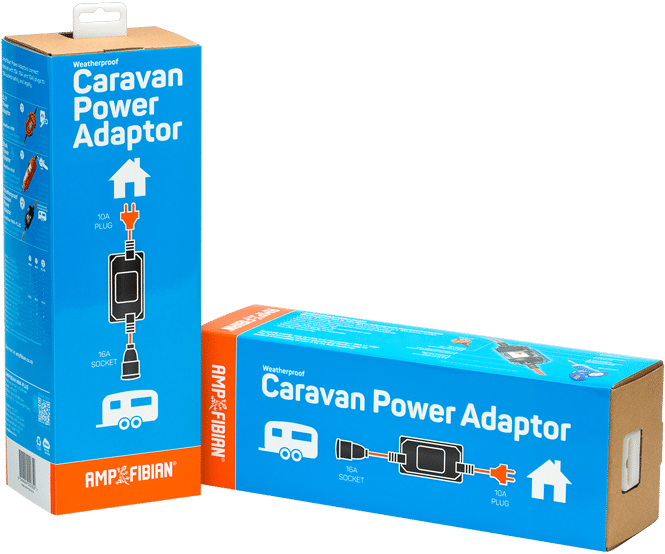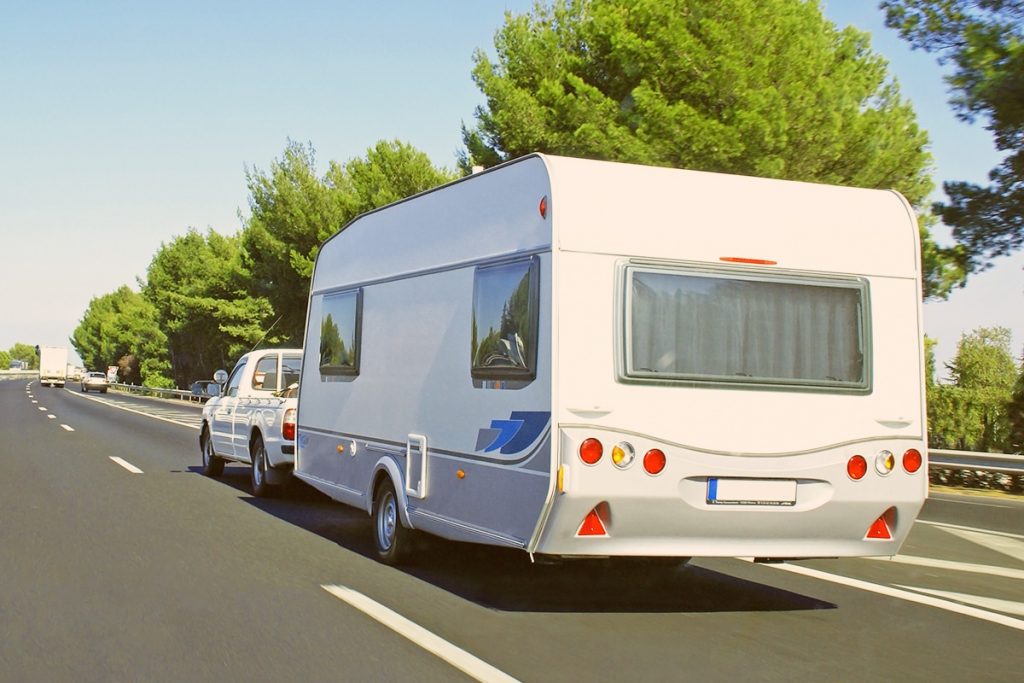
If you’re planning to set off on a caravan holiday any time soon, you’re not alone. Sales of caravans have hit a thirty-year high this year in Australia, as Covid restrictions encourage more Aussies to holiday at home and explore our beautiful country.
To help ensure your trip goes off without a hitch, we’ve put together this little safety checklist to get you all set for the trip.
1. Before your trip
Before you head off, make sure you do a thorough check of both your car and caravan.
Tyres
Tyres are really important and should be thoroughly checked before the big trip.
Make sure you’ve still got a decent amount of tread on your tyres – above 1.6mm. And that they’re not cracked or peeling anywhere. Especially if they haven’t moved in a while. You’ll also want to make sure that they’ve got enough air in them and that they’re inflated to the correct pressure. If you’re not sure what pressure you should have them at, your car should have a sticker on the inside frame of the driver or passenger door. Or check your car’s manual.
For your caravan or RV, check the manual, or you can just figure it out yourself.
If possible, it’s always a good idea to replace tyres that are more than five years old.
It’s also a good idea to carry a spare tyre and a compact portable air pump that can run off your car battery, just in case.
Breakaway cable
Make sure the breakaway cable (or safety chain if you have a smaller unbraked trailer) looks and feels secure and is connected properly to your car.
Mirrors
Having good visibility is important when you’re towing anything. So once you’re attached, check your visibility to see what you can see – or not see. You might want to consider attaching extension mirrors.
Outfit ratio
The outfit ratio is about having the heaviest towcar for your caravan, so that your caravan doesn’t become uncontrollable. Ideally, your towed load should be no more than 85% of your car’s kerb weight. But some car manufacturers will state a different towing limit in the manual, so check that before you take off.
Nose weight
The nose weight is the maximum caravan hitch weight allowed on the car’s tow ball. Whilst it’s important the caravan nose weight is heavy enough to maintain stability, you should never exceed the nose weight stated in your manufacturer’s guidelines.
Overloading
Never overload your caravan as this can make you unstable. It’s also against the law. Heavier items should always be positioned over the axel and nearer the floor of the caravan.
Charge your batteries
Before heading off on a trip, you’ll want to ensure your van’s batteries are charged and your fridge is cooled. If you’re charging up at home, make sure you connect in a safe and legal way.
This is where an Ampfibian RV-PLUS weatherproof caravan adapter comes in handy. It lets you safely charge your 15A devices from your 10A domestic power supply. There’s also the added bonus of it having a miniature circuit breaker built in that stops the wiring from overheating and an RCD (residual current device) to protect you against electrocution. Order yours today.
2. Arriving at the site
When you arrive at your campsite or caravan park, find your spot and park up.
It’s always a good idea to leave at least six metres from neighbouring caravans. And be mindful of large trees overhead, as branches can sometimes come down during a storm – you don’t want your caravan under a large branch when that happens.
It’s also a good idea to store your petrol, gas or diesel containers away from your caravan..
3. Safe storage
You should be mindful of where you store flammable items, particularly if you plan on using a fire or other heat source. Some things to consider might be:
- Where to discard matches or cigarettes
- Store pressurised containers such as hairspray away from heat sources
- Keep clothes, sheets and curtains away from heaters or cookers
- Avoid using portable paraffin heaters
4. Install heat and smoke alarms
Your caravan should have at least one smoke or heat alarm installed and you should test your alarms before any trip to ensure the batteries are working. Ideally, fit optical alarms, as these are most effective in caravans.
5. Install a carbon monoxide detector
Carbon monoxide leaks are almost impossible to detect because it’s an odourless gas. That said, carbon monoxide poisoning is deadly, so having a detector is important.
If you’re alerted to a leak, switch off all appliances in the caravan, open all doors and windows, and don’t light matches or cigarettes until the caravan has been cleared of carbon monoxide.
6. Devise an escape plan
When you arrive at your campsite, make sure you’ve planned out what you should do in the case of an emergency.
Make sure everyone knows what to do if the fire or smoke alarm goes off, and where they should regroup after an evacuation – somewhere away from the caravan and any possible danger.
Keep a glass break hammer in the caravan, making sure everyone knows where it’s kept in case you ever need to escape from the caravan quickly, or if for any reason the door is blocked.
7. Safe cooking
Because of the limited space in a caravan, you must never leave your cooker unattended, and always keep a fire blanket and/or extinguisher to hand in the kitchen.
If your pan ever catches fire, don’t throw water on it or use a fire extinguisher as these can make the situation worse. Grab a fire blanket and throw it on the fire – if safe to do so – and turn the heat source off. And get everyone out of the caravan as quickly as possible.
8. Electrical safety
Before your trip, make sure all electrical wiring is in good condition, and make sure you keep water sources away from anything electric. You can also consider using connector protectors to keep your leads safe from water.
As a matter of routine, unplug all electrical equipment at night and when you leave the caravan for the day. Don’t overload mains sockets and don’t run appliances from a light socket.
Power surges are also something you should be aware of. They can be caused by a range of events such as lightning hitting the grid or your generator running out of fuel. Surges can fry your electrical devices and do irreparable damage.
Power surges are also far too fast and powerful to be curbed by a circuit breaker or RCD, and so a caravan surge protector is always recommended.
9. Safe heating
If you’re cooking using a campfire or barbecue, make sure you keep it a safe distance from your caravan. Ideally, use designated firepits or barbecues that can be contained.
When you use heaters, make sure the caravan is well-ventilated by opening a door or window. And make sure all air vents are clear from blockages.
10. Pack a first-aid kit
Finally, there’s no way of accounting for every last eventuality, and there’s always a chance of small injuries when you’re caravanning. From a bee sting to a cut from a kitchen knife, you’ll want to deal with incidents quickly.
Keep a well-stocked first-aid kit in the caravan- equipped with plasters, antiseptic, tweezers, antihistamine etc – so that you can deal with minor injuries on site.
Are you a seasoned caravaner? If so, we’d love to know your top safety tips. Get in touch at sales@ampfibian.com.au and we’ll share our favourite tips in a future blog post.
In the meantime, happy caravanning, and keep connected to Ampfibian!
